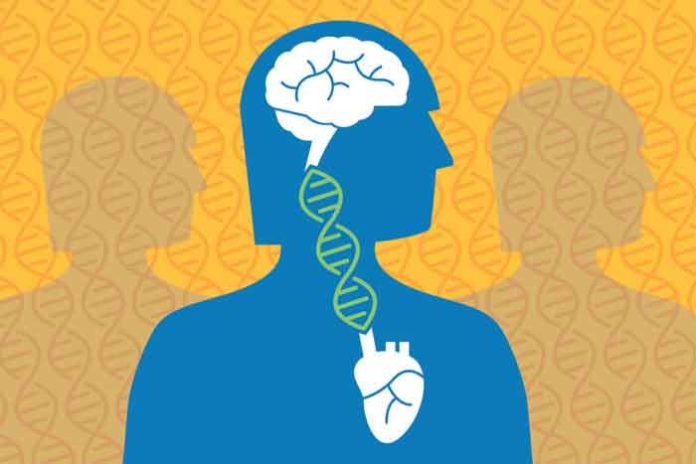An international team of scientists has identified DNA from almost 1.5 million people and identified points of DNA that appear to be involved both in cardiovascular disease risk and the risk for Alzheimer’s.
Scientists primarily detected differences in the DNA of people with factors that contribute to heart disease or Alzheimer’s disease. They found 90 points across the genome that were associated with risk for both diseases. Six among 90 points were found to be associated with Alzheimer’s and heightened blood lipid levels.
These included several points within the CELF1/MTCH2/SPI1 region on chromosome 11 that previously had been linked to the immune system.
Celeste M. Karch, Ph.D., an assistant professor of psychiatry at Washington University School of Medicine said, “These findings represent an opportunity to consider repurposing drugs that target pathways involved in lipid metabolism. Armed with these findings, we can begin to think about whether some of those drugs might be useful in preventing or delaying Alzheimer’s disease.”
“Our study emphasizes that there’s much to learn about how genes driving Alzheimer’s disease risk also increase the risk for other health problems, particularly cardiovascular disease, and vice versa. So we really need to think about these risks more holistically.”
They concentrated on particular hazard factors for heart disease- for example, a high body mass index, type 2 diabetes and lifted triglyceride and cholesterol levels (HDL, LDL, total cholesterol) — to check whether any of these very much perceived hazard factors for heart disease likewise were hereditarily identified with Alzheimer’s hazard.
Karch said, “The genes that influenced lipid metabolism were the ones that also were related to Alzheimer’s disease risk. Genes that contribute to other cardiovascular risk factors, like body mass index and type 2 diabetes, did not seem to contribute to genetic risk for Alzheimer’s.”
Rahul S. Desikan, MD, PhD, an assistant professor of neuroradiology at UC San Francisco said, “Although more research is needed, the new findings suggest that if the right genes and proteins could be targeted, it may be possible to lower the risk for Alzheimer’s disease in some people by managing their cholesterol and triglycerides.”
“These results imply that irrespective of what causes what, cardiovascular and Alzheimer’s pathology co-occur because they are linked genetically. That is, if you carry this handful of gene variants, you may be at risk not only for heart disease but also for Alzheimer’s.”
The findings are published Nov. 12 in the journal Acta Neuropathologica.
